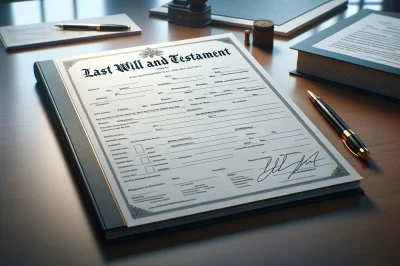Table of Contents

A Will Trust, also known as a Living Trust, is a legal arrangement that is created within a person’s will and comes into effect upon their death. It involves the transfer of assets or property into a trust to be managed and distributed according to the instructions outlined in the will.
The team at Swansea Legal Solutions explains more about Will Trusts as follows:
Will Trusts
The primary purpose of a Will Trust is to ensure that the assets or property left behind by the deceased person (the testator) are managed and distributed in a specific manner, usually for the benefit of certain beneficiaries. The testator, through their will, becomes the settlor of the trust. They specify the terms and conditions under which the assets are to be held and distributed. The testator also appoints one or more trustees who will be responsible for managing the trust.
The beneficiaries of a Will Trust are the individuals or organisations who are designated to receive the assets or benefits from the trust. These beneficiaries can be named in the will or determined by certain conditions specified by the testator.
The testator must have testamentary capacity, meaning they must be of sound mind and understand the nature and implications of creating a Will Trust. This ensures that their wishes are expressed clearly and without undue influence.
The testator can also specify the conditions under which the assets or property should be distributed to the beneficiaries. They can outline how and when the beneficiaries will receive their share, set conditions (such as reaching a certain age), or appoint trustees to manage the trust for a specified period.
Upon the death of the testator, the Will Trust is subject to the probate process, which involves validating the will, identifying the assets, and carrying out the instructions outlined in the will. The trustees are responsible for administering the trust and ensuring the assets are distributed according to the testator’s wishes.
Will Trusts can serve various purposes, such as providing for minor children, protecting assets from potential creditors, or managing assets for vulnerable beneficiaries.
Who Should Take Out a Will Trust?
The decision to take out a Will Trust depends on individual circumstances, goals, and the complexity of your estate. While Will Trusts can be beneficial for some individuals, they may not be necessary for everyone. Here are some scenarios when taking out a Will Trust could be considered:
- Estate Planning: If you have a complex estate, including substantial assets, multiple properties, business interests, or investments, a Will Trust can provide a structured approach to estate planning. It allows for specific instructions on how your assets should be managed, protected, and distributed after your death.
- Minor Children: If you have minor children, a Will Trust can be used to ensure that their financial needs are met until they reach a certain age or milestone. The trust can hold and manage the assets on their behalf, protecting their inheritance until they are capable of managing it themselves.
- Blended Families: If you have a blended family with children from previous relationships, a Will Trust can help address complex family dynamics. It can ensure that your assets are distributed fairly among all beneficiaries and provide for the surviving spouse or partner while protecting the interests of children from previous relationships.
- Asset Protection: If you have concerns about protecting your assets from potential creditors, divorce, or other financial risks, a Will Trust can provide a layer of protection. By placing assets into a trust, you can control their distribution and safeguard them for the intended beneficiaries.
- Tax Planning: For individuals with substantial estates, a Will Trust can be used as a tax planning tool. It may help minimize inheritance tax liabilities and provide more flexibility in managing tax obligations.
- Charitable Giving: If you have philanthropic goals, a Will Trust can be used to include charitable donations or establish a charitable foundation. This allows you to support causes you care about even after your death.
Swansea Legal Solutions
It’s important to consult with legal professional or estate planning specialist, like Swansea Legal Solutions, to evaluate your specific circumstances and determine whether a Will Trust is appropriate for you. We can provide personalised advice and help you create a comprehensive estate plan that aligns with your wishes and objectives.
Call a member of our team to book a free consultation today on 01792 420844.
- Navigating Probate in the UK: A Step-by-Step Guide – 1 July 2025
- Common Mistakes to Avoid During the UK Probate Process – 27 June 2025
- Probate for Property: What Happens to a House in the UK Probate process? – 24 June 2025







Leave a Reply
You must be logged in to post a comment.